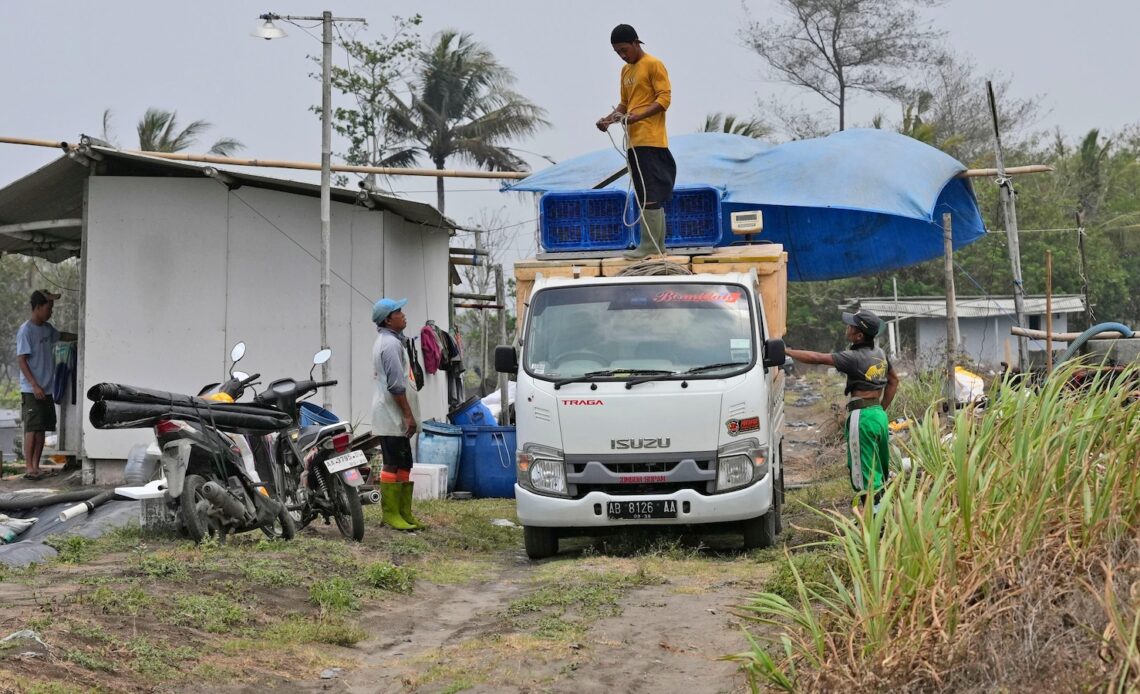BANGKOK — Indonesian shrimp farmer Yulius Cahyonugroho operated more than two dozen ponds only a few years ago, employing seven people and making more than enough to support his family.
Since then, the 39-year-old says the prices he gets from purchasers have fallen by half and he’s had to scale back to four workers and about one-third the ponds, some months not even breaking even. His wife has had to take a job at a watermelon farm to help support their two children.
“It is more stable than the shrimp farms,” said the farmer from Indonesia’s Central Java province.
As big Western supermarkets make windfall profits, their aggressive pursuit of ever-lower wholesale prices is causing misery for people at the bottom end of the supply chain — people like Cahyonugroho who produce and process the seafood, according to an investigation by an alliance of NGOs focused on three of the world’s largest producers of shrimp provided to The Associated Press ahead of its publication on Monday.
The analysis of the industry in Vietnam, Indonesia and India, which provide about half the shrimp in the world’s top four markets, found a 20%-60% drop in earnings from pre-pandemic levels as producers struggle to meet pricing demands by cutting labor costs.
In many places this has meant unpaid and underpaid work through longer hours, wage insecurity as rates fluctuate, and many workers not even making low minimum wages. The report also found hazardous working conditions, particularly in India and parts of Indonesia, and even child labor in some places in India.
“The supermarket procurement practices changed, and the working conditions were affected — directly and rapidly,” said Katrin Nakamura of Sustainability Incubator, who wrote the regional report and whose Hawaii-based nonprofit led the research on the industry in Vietnam. “Those two things go together because they’re tied together through the pricing.”
Tubagus Haeru Rahayu, the director general of aquaculture for Indonesia’s Maritime Affairs and Fisheries Ministry, said he was surprised by the report’s findings and had already reached out to people in the industry to investigate the price pressures.
“If there is pressure like that, there will definitely be a reaction — not only in Indonesia but in Vietnam and India too,” he told the AP in an interview at his Jakarta office.
Indian and Vietnamese officials refused to comment.
Supermarkets linked to facilities where exploited labor was reported by…
Click Here to Read the Full Original Article at ABC News: Business…

